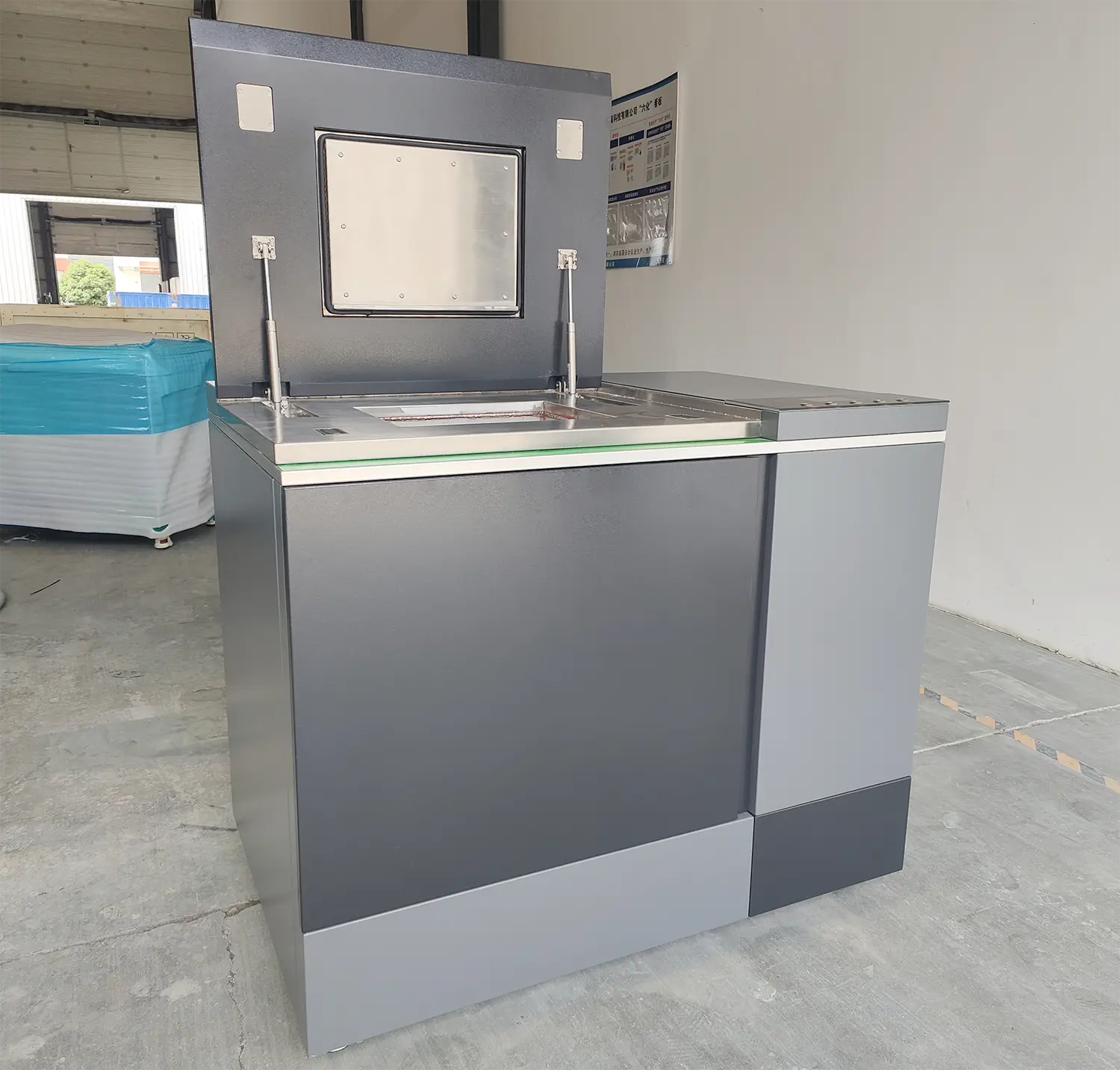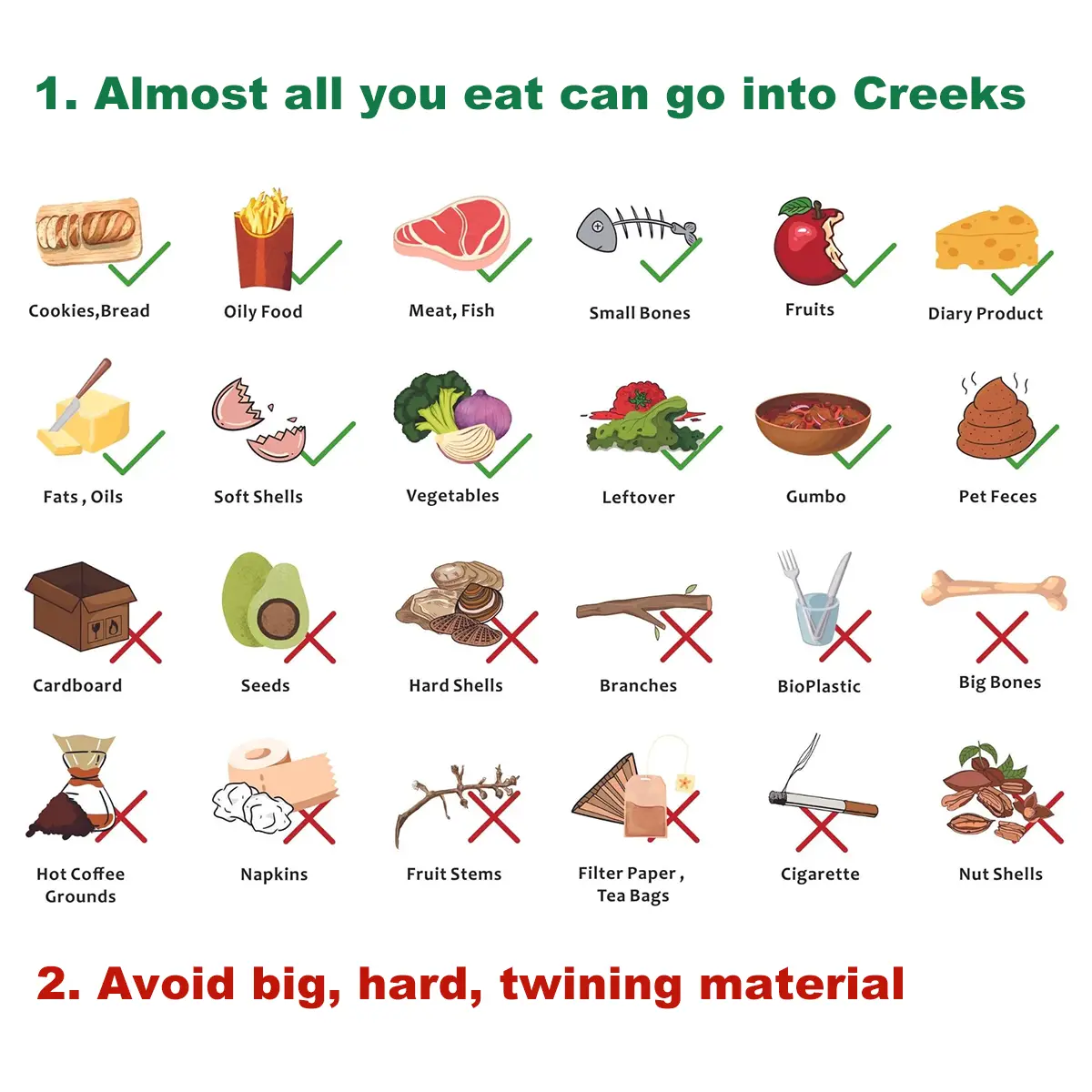
Food Recycling Machine – Turn Waste into Nutrient-Rich Compost
A food recycling machine is a device that helps convert organic waste materials into nutrient-rich compost, which can be used as fertilizer for plants. These composters can be used to compost food waste, including vegetable and fruit scraps, coffee grounds, eggshells, and yard waste such as grass clippings and leaves.
There are many different types of food recycling machines available, including countertop composters, small-scale composters, and large-scale composters for commercial or industrial use.
Using a food recycling machine can help reduce the amount of organic waste that ends up in landfills, which can contribute to greenhouse gas emissions and other environmental problems. Additionally, composting can help to enrich soil and promote healthy plant growth, making it a great way to reduce waste while improving the health of your garden or yard.
WORKING ENVIRONMENT
The food waste can be thrown into the machine anytime and unlimited times, as long as it does not exceed the maximum capacity, for example, 100kg/day.
The digestion process is a high-temperature aerobic process that requires oxygen, and the room where the machine is placed needs a window installed in a dry and ventilated place.
Avoid installing in a wet place next to the wash basin.
FOOD WASTE TYPE THAT CAN BE UT INTO THE MACHINE
- Animal Meat, Internal Organs
- Frog, Poultry, and Fish Bones
- Crab Shell, Shrimp Shell, Egg Shell
- Fish Scale, Dead Fish, Rotten Shrimp
- Rice Porridge, Rice, Bread, Pastries
- Vegetables, Rhizomes, Fruit, Nucleus, Sugar Cane Bagasse
- Durian Shell (need to be cut into small pieces of 2 cm by another machine)
- Tissue Paper, Food Waste, etc.
- Animal, Bird, Chicken Droppings/Excreta/Shit
- Tea Grounds, Coffee Grounds
- Hot Pot Bottom Material, Roast Fish Leftover Soup Residue (need to use a sieve to filter out the soup, the remaining residue can be poured into the machine. Used oil can be sold to used oil purchasers)
FOOD WASTE TYPE THAT CANNOT BE UT INTO THE MACHINE
- Plastic Box, Plastic Dishes & Glasses
- Ceramic or Steel Products & Beer Bottle
- Inorganic Shell (Clam Shell, Conch Shell)
- Large Cattle, Pig, and Sheep Bones (It takes about a month for large machines to digest)
- Bamboo Dumpling Leaves, Banana Leaf, Wood & Normal Paper
- Even throw in a beer bottle, or fork, spoon, etc. The machine will not stop and will not be damaged, and all items will come out with compost from the machine.

Benefits of Using a Food Recycling Machine
1. Reducing landfill waste: When you compost your food waste, you’re keeping it out of landfills, where it would otherwise contribute to greenhouse gas emissions and other environmental problems.
2. Improving soil health: Compost is a nutrient-rich soil amendment that can help to improve soil health and promote healthy plant growth. When you use compost in your garden or yard, you’re providing your plants with the nutrients they need to thrive.
The Future of Food Recycling
With advancements in AI and IoT, smart food recyclers can now optimize decomposition and connect to apps for tracking waste reduction. Governments and businesses are also investing in large-scale systems to meet sustainability goals.
Conclusion
Food recycling machines are a powerful tool in the fight against food waste. By adopting these technologies, households and industries can contribute to a greener planet while saving resources. As innovation continues, these devices may soon become as common as recycling bins in every home.
